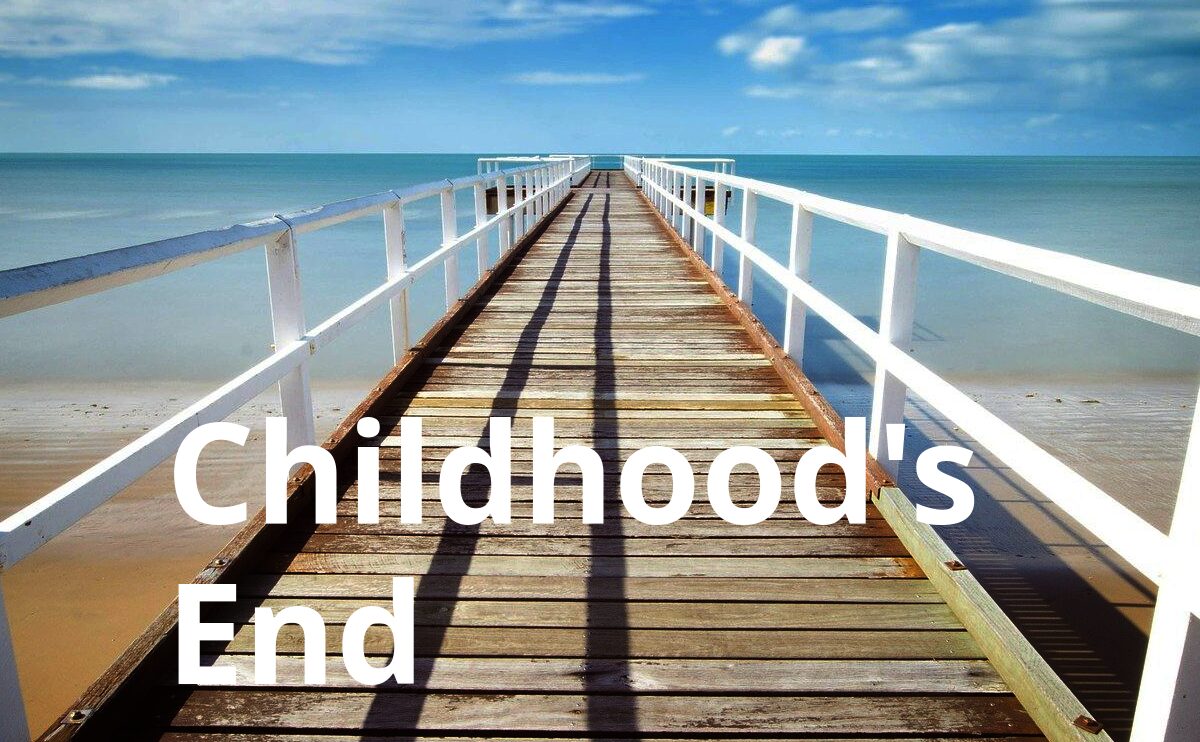Childhood’s End / Arthur C. Clarke / sci-fi (Classic)
to pontificate
One day in the late 20th century, a giant spaceship appeared in the sky over the world and announced, “From now on, we will take control of this planet.”
The story opens like Independence Day, but in the opposite direction. The master of the fleet, who calls himself Karellen, gives the people of Earth knowledge and technology and encourages them to develop their civilization. There are a few quarrels and disagreements, but it is a very peaceful story.
Check the Wikipedia.
Childhood’s End is a 1953 science fiction novel by the British author Arthur C. Clarke. The story follows the peaceful alien invasion[1] of Earth by the mysterious Overlords, whose arrival begins decades of apparent utopia under indirect alien rule, at the cost of human identity and culture.
https://en.wikipedia.org/wiki/Childhood%27s_End
Arthur C. Clarke As the day fades Brown Tabby Cat Childhood’s End Cordwainer Smith David Brin Double Crown Dreamsnake Dune Series Ender's Game Frank Herbert Frederik Pohl Gateway Hugo Instrumentality of Mankind Isaac Asimov Joe Haldeman Jupiter Larry Niven Locus Nebula Neuromancer Nightfall Norstrilia Orson Scott Card Quadruple Crown Rendezvous with Rama Ringworld Robert A. Heinlein sci-fi sci-fi(Classic) Speaker for the Dead Startide Rising The Dispossessed The Door into Summer The Forever War The Fountains of Paradise The Gods Themselves The Left Hand of Darkness Triple Crown Ursula K. Le Guin Vonda N. McIntyre William Gibson Ψυχή :: 黎明
Childhood’s End
The pros and cons of humanity evolving to a higher existence at the expense of its own culture and identity.
Humanity evolving to a higher existence at the expense of its own culture and identity is a complex topic with various pros and cons. Here are some potential points to consider:

Pros:
- Advanced Knowledge and Technology:
- Evolving to a higher existence could lead to unprecedented advancements in knowledge and technology, improving the quality of life and solving many of the world’s current problems.
- Enhanced Abilities:
- Humans might gain enhanced cognitive and physical abilities, leading to improved health, longer lifespans, and greater capabilities in various fields.
- Unified Society:
- A higher existence might promote a more unified global society, reducing conflicts and fostering cooperation on a larger scale.
- Exploration and Discovery:
- With advanced capabilities, humanity could explore and understand more about the universe, unlocking new frontiers in science and space exploration.
- Elimination of Suffering:
- Advanced technology and knowledge could potentially eliminate many forms of human suffering, such as diseases, poverty, and hunger.
Cons:
- Loss of Cultural Diversity:
- Evolving to a higher existence might mean losing the rich tapestry of human cultures, traditions, and identities that have developed over millennia.
- Ethical and Moral Dilemmas:
- The transition could raise significant ethical and moral questions, such as the definition of humanity and the rights of those who choose not to evolve.
- Identity Crisis:
- Individuals and societies might face an identity crisis, struggling to find meaning and purpose in a drastically changed world.
- Potential for Inequality:
- The process of evolution might not be equally accessible to everyone, leading to new forms of inequality and social division.
- Loss of Heritage:
- Important historical and cultural heritage might be neglected or forgotten, leading to a loss of connection with humanity’s past.
- Psychological Impact:
- The rapid pace of change could have significant psychological impacts on individuals, causing stress, anxiety, and a sense of disorientation.
- Unintended Consequences:
- There may be unforeseen negative consequences of such a dramatic evolution, including potential risks to human freedom and autonomy.
In conclusion, while evolving to a higher existence offers many potential benefits, it also poses significant risks and challenges. Balancing these pros and cons would be crucial in making informed decisions about the future of humanity.
Related works
Childhood’s End